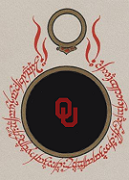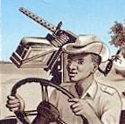|
I don't have much expertise on Sub-Saharan Africa, so I can't provide much background info, but since there's recently been major upheavals in several countries across the area, I figured this needs a thread. If anyone can provide background info, that would be appreciated. I have a few BBC articles to start with. http://www.bbc.co.uk/news/world-africa-25480178]In South Sudan, there was an attempted coup d'tetat was has apparently morphed into a major rebellion that has taken control of a major South Sudanese state[/url]. quote:Former South Sudan Vice-President Riek Machar has said rebel troops have captured the key oil-producing state of Unity and control much of the country. In Nigeria, members of the fundamentalist Islamic/seccessionist Boko Haram group have attacked an army barracks. quote:Suspected Islamist militants have attacked a military barracks in north-eastern Nigeria in a fierce battle that lasted for several hours. And the LA Times reports that a UN envoy (technically the US ambassador to the UN) has arrived in the Central African Republic amid sectarian violence in the country. quote:WASHINGTON – U.S. Ambassador to the United Nations Samantha Power on Thursday pressed leaders of the Central African Republic to halt sectarian killings in their nation. Her eight-hour visit underscored the challenges facing U.S. efforts to end the conflict. Again, I don't know much about this area, so if anyone has extra information, that would be helpful.
|
|
|
|

|
| # ? Apr 25, 2024 23:58 |
|
Things are really tense in South Sudan. 4 US troops were injured during an evacuation operation in South Sudan. #BorTruth #Obamaquote:A mission to evacuate Americans from South Sudan was aborted Saturday when an aircraft carrying U.S. military members was fired upon as it prepared to land in Bor, wounding four of them, the Pentagon said. Up to 100,000 people have been displaced by the fighting already. Scary situation.
|
|
|
|
I lived in Dar es Salaam for 7 months. Ask me anything.
|
|
|
|
I live in Benin, on the western Nigeria border. While there is a still a lot of commerce going on between the nations (mostly gasoline smuggling, also child slavery), the average people are getting more and more concerned over events in Nigeria. I am a good ~4 hours from the border, but the local police and gendarmerie actually visited all of us foreigners living and working in the area to build a plan to evacuate us in case Boko Haram attacks into Benin. People don't think it will really happen, but there is always the off change they do, like when they grabbed that French family last year.
|
|
|
|
I live in Kisangani, DRC, and we've been pretty isolated from the events in the east. Then again, there's a heavy MONUSCO (UN stabilization force) presence here, and until a few months ago, US contractors were still training FARDC battalions. I'm working on an agricultural development project out here, so I'm not too plugged into the security situation, but I can try to answer questions about the area.
|
|
|
|
Slaan posted:I live in Benin, on the western Nigeria border. While there is a still a lot of commerce going on between the nations (mostly gasoline smuggling, also child slavery), the average people are getting more and more concerned over events in Nigeria. I am a good ~4 hours from the border, but the local police and gendarmerie actually visited all of us foreigners living and working in the area to build a plan to evacuate us in case Boko Haram attacks into Benin. People don't think it will really happen, but there is always the off change they do, like when they grabbed that French family last year. I remember years ago reading about how Nigeria was more or less the poster child for stable government in the region and was acting as mediator for local conflicts. What has changed since then, is the oil wealth no longer as beneficial as it once was? Or are radical terrorists groups just expanding into the region since its much easier to recruit and succeed?
|
|
|
|
Nigeria was never really all that stable compared to say, Ghana or Senegal. But the recent fighting has come around because of two major reasons: 1. The corruption of the government of Nigeria is incredibly flagrant. The government receives a ton of money from their petroleum operations, but they only spend it building up their villages in the South. The south is majority Christian and has generally had the most political power in Nigeria. So all the infrastructure spending, better education, etc. is targeted by Southern Christian politicians into Southern Christian villages to buy votes. The Islamic north in general feels left out of development spending and feels alienated by a government which is all but officially Christianist. This is the primary reason Cote d'Ivoire seems to have small civil wars every few years as well; the Islamic north gets fed up over southern corruption and takes over. And then the opposite happens a few years later. 2. Islamic peasant rebellions are happening all over the world in general. As new uprisings are made and defeated, the players from each scatter into new countries, spreading radical Islam to new places. The fighting in Mali for example was started by the old guards of Libya kicked out during their civil war. The guys fighting in East Africa were propped up by Al Qaeda refugees who fled Afghanistan and Pakistan in the 2000s. Boko Haram itself seems to be mostly homegrown, but their rapid rise in power and switch from a mostly anti-corruption platform to Islamic jihad is surely connected as well. So in the last few years Boko Haram was a collection of northerners fighting against corrupt governance by the south. Islam was a component of their activities, but not the focus. But as the group has grown, it has become more Islamized as the original members got killed off and foreign fighters and money came in.
|
|
|
|
My knowledge of Sub-Saharan Africa is, unfortunately like a lot of people, criminally limited. One thing I'm moderately aware of and interested in is the East African Federation. Anyone know anything more about this? What is the likelihood of actual federation between these countries, and what would the ramifications be? I know enough about S-SA (I think) to know that ethnic divisions are a huge problem, with physical boundaries between ethnic groups often running through multiple countries and in many cases identification with a clan or ethnic group trumps identification with a state. Is inclusiveness through federation a way forward or a boondoggle? On a related note, how successful has the African Union been in promoting its goals as well? I know the AU often sends peacekeepers to troubled regions--how has that worked out?
|
|
|
|
TipTow posted:My knowledge of Sub-Saharan Africa is, unfortunately like a lot of people, criminally limited. One thing I'm moderately aware of and interested in is the East African Federation. Anyone know anything more about this? What is the likelihood of actual federation between these countries, and what would the ramifications be? I know enough about S-SA (I think) to know that ethnic divisions are a huge problem, with physical boundaries between ethnic groups often running through multiple countries and in many cases identification with a clan or ethnic group trumps identification with a state. Is inclusiveness through federation a way forward or a boondoggle? I'm highly doubtful there will ever be a single East African state, I do think the East African Community will continue to expand and a monetary union is definitely going to happen (Hell, they've agreed to implementing one within the next ten years!) but I doubt there is a political will among any of the EAC's leaders to cede power to that degree. East Africa has actually been very successful in constructing national identities when compared to other regions in Africa, Tanzania is the poster boy for ethnic stability in Africa and has a very strong conception of Tanzania as a nation-state founded on principles of equality and unity. Of course there are still ethnic conflicts (Kenya, Uganda) but most of these happen within the borders of the individual states and are understood in national terms (with the exception of the Tutsi insurgency in the Kivus that Rwanda likes to stick it's nose into), there is a bit of muddy crossover area in Northern Uganda/South Sudan/Eastern DRC but this is more down to porous borders than anything. EDIT: And the Somali dominated eastern region of Kenya, forgot about that, that's a major source of conflict spill-over and an area that Kenya really hasn't managed to integrate into it's territory at all. kustomkarkommando fucked around with this message at 16:14 on Dec 22, 2013 |
|
|
|
On the South Sudan front, there have been reports that the Ugandan air force have started bombing positions held by serial-rebel General Peter GadetSouth Sudan News Agency posted:At least three jets of the Ugandan air force bombed the positions of the General Peter Gatdet Yak in Bor, the capital of Jonglei State. This isn't massively surprising, Uganda is a regional military power-house who have made it their business to get involved in regional conflicts (both through AU peacekeepers and through unilateral intervention) but it is rather unusual to see this happen so quickly.
|
|
|
|
Slaan posted:I live in Benin, on the western Nigeria border. While there is a still a lot of commerce going on between the nations (mostly gasoline smuggling, also child slavery), the average people are getting more and more concerned over events in Nigeria. I am a good ~4 hours from the border, but the local police and gendarmerie actually visited all of us foreigners living and working in the area to build a plan to evacuate us in case Boko Haram attacks into Benin. People don't think it will really happen, but there is always the off change they do, like when they grabbed that French family last year. What do you make of the reports of piracy in west Africa?
|
|
|
|
Xibanya posted:I lived in Dar es Salaam for 7 months. Ask me anything. Slaan posted:I live in Benin, on the western Nigeria border. While there is a still a lot of commerce going on between the nations (mostly gasoline smuggling, also child slavery), the average people are getting more and more concerned over events in Nigeria. I am a good ~4 hours from the border, but the local police and gendarmerie actually visited all of us foreigners living and working in the area to build a plan to evacuate us in case Boko Haram attacks into Benin. People don't think it will really happen, but there is always the off change they do, like when they grabbed that French family last year. surrender posted:I live in Kisangani, DRC, and we've been pretty isolated from the events in the east. Then again, there's a heavy MONUSCO (UN stabilization force) presence here, and until a few months ago, US contractors were still training FARDC battalions. I'm working on an agricultural development project out here, so I'm not too plugged into the security situation, but I can try to answer questions about the area. How's the internet speed Farecoal fucked around with this message at 17:10 on Dec 22, 2013 |
|
|
|
I'm probably going to come across as naive here but there have been reports of Boko Haram specifically targeting children. Is this Nigerian government propaganda or if it is happening is this out of the ordinary or par for the course in this type of conflict?
|
|
|
|
Hey Slaan I am hecka interested in Benin. Thanks for the email!
Fall Sick and Die fucked around with this message at 13:52 on Dec 23, 2013 |
|
|
|
Xibanya posted:I lived in Dar es Salaam for 7 months. Ask me anything. Do you have any pictures of yourself surrounded by smiling black children?
|
|
|
|
SedanChair posted:Do you have any pictures of yourself surrounded by smiling black children? No, I was working in advertising sales so I have pictures of myself shaking the hands of black businessmen. RE: internet speed, it was loving awful and expensive. We mainly got by on using USB modems which never got faster than like 1mps if you were lucky. I often went to cafes for wifi but it was only marginally better. To have a wifi router cost 400,000 TZS per month, which was a bit under $200 at the time I believe. The upside was, I didn't have to skype my boss every night as was typical on other projects. They recently laid down a fibre cable called SEACOM so everyone thinks things will improve...well maybe. I did talk to a lot of finance guys from telecom companies who thought their business was going up, but they didn't buy the space, the wily bastards. I also had two different SIM cards. This is extremely typical in East Africa.
|
|
|
|
Slaan posted:Nigeria was never really all that stable compared to say, Ghana or Senegal. But the recent fighting has come around because of two major reasons: I've been told that the Islamic population only became aggravated when the presidency was no longer held by a Muslim.
|
|
|
|
I just finished reading Africa and Africa's World War in an attempt to educate myself about the issues surrounding the African continent, which I'm ashamed to say I've been largely ignorant of. If there are any books that people can recommend on the subject, I'd be glad to hear about them.Slaan posted:I live in Benin, on the western Nigeria border. While there is a still a lot of commerce going on between the nations (mostly gasoline smuggling, also child slavery), the average people are getting more and more concerned over events in Nigeria. I am a good ~4 hours from the border, but the local police and gendarmerie actually visited all of us foreigners living and working in the area to build a plan to evacuate us in case Boko Haram attacks into Benin. People don't think it will really happen, but there is always the off change they do, like when they grabbed that French family last year. I represented your country in the Model United Nations in High School. We didn't win any awards. I'm sorry I'm actually having a hard time imagining a place in Benin that's more than four hours away from the Nigerian Border. I'm assuming (possibly wrongly) that you're not in Cotonou or Porto Novo. What's it like where you're at? surrender posted:I live in Kisangani, DRC, and we've been pretty isolated from the events in the east. Then again, there's a heavy MONUSCO (UN stabilization force) presence here, and until a few months ago, US contractors were still training FARDC battalions. I'm working on an agricultural development project out here, so I'm not too plugged into the security situation, but I can try to answer questions about the area. What's the general perception of the Kivus among DRC citizens living outside the east? Xibanya posted:I lived in Dar es Salaam for 7 months. Ask me anything. Are you a Westerner? What was it like living in Tanzania as a foreigner? Were there problems with crime, what was local politics like? quote:I also had two different SIM cards. This is extremely typical in East Africa. illrepute fucked around with this message at 20:57 on Dec 22, 2013 |
|
|
|
I answered directly to Goodluck Jonathan's wife for a year, ending last July. I lived in Abuja, riiight on the southern edge of the Sahel, and that city was locked down tight. There weren't any BH attacks while I was there, but there were some right before and right after. It's amazing just how populated Nigeria is; it's the size of Texas with ten times the population. Kano, a city in the north that most people have probably never heard of, has over twelve million people living there depending on the season. My -ex was from Maidugury, and always had stories of horrific violence from her relatives that were still there. Being around the President and his family constantly, I had a first-row seat to the classism and corruption of top Nigerian Christian society. I'm currently writing a book about all the stupid poo poo I saw. It's a shame BH are crazy, murderous fanatics, because I'd wholeheardtly support a revolution there. What others have said about telecommunication is true; I had three sim cards, two USB 3G modems from different companies, and the fastest internet speeds let me Skype, but with no video. For the poster above, it's because SIM cards are cheap as poo poo, and different companies have their entire systems go down for days on end. BH likes to destroy cell towers. Things are absolutely nuts in Central and Northern Nigeria, and it's only going to get worse as long as corrupt idiots stay in power. Goodluck Jonathan is the Homer Simpson of West Africa and it's no secret to the average person. In the end, though, I'll still be going back when I can. It's just too amazing a country. i say swears online fucked around with this message at 21:06 on Dec 22, 2013 |
|
|
|
Aliquid posted:Being around the President and his family constantly, I had a first-row seat to the classism and corruption of top Nigerian Christian society. I'm currently writing a book about all the stupid poo poo I saw. It's a shame BH are crazy, murderous fanatics, because I'd wholeheardtly support a revolution there. I would buy the hell out of that book. In Dowden's Africa Nigeria's government was described as being corruption in the rough shape of a government, with the author used the analogy of a dead tree-trunk covered in parasitic vines to describe it (the vines created a roughly tree-shaped mass that could be mistaken as one to a casual observer). It's sad to see Africa's most populous country suffer like that. It sounded like crime was a massive problem in the big cities, though. How would you advise someone travelling in Nigeria to avoid it? illrepute fucked around with this message at 21:14 on Dec 22, 2013 |
|
|
|
Aliquid posted:Being around the President and his family constantly, I had a first-row seat to the classism and corruption of top Nigerian Christian society. I'm currently writing a book about all the stupid poo poo I saw. It's a shame BH are crazy, murderous fanatics, because I'd wholeheardtly support a revolution there. So just how much ogogoro does he go through in a week? I need answers
|
|
|
|
kustomkarkommando posted:So just how much ogogoro does he go through in a week? I need answers Haha, more like Alomo Bitters. One thing going for the dude is that he exudes blue collar vibes. He's just a schlub with a PhD in Zoology. Nigerian Newt Gingrich without the Grand Ideas. illrepute posted:It sounded like crime was a massive problem in the big cities, though. How would you advise someone travelling in Nigeria to avoid it? Man, I don't even know. Just don't go to the North. If you're rich, you'll live in your bubble of Land Rovers and exclusive generators, and you don't go out much among the regular people. I wandered through some slums in Lagos where I'm sure a white dude hadn't been since Independence and with my shaved head and giant beard, the looks I got were more shock and bewilderment than danger. Teenagers would give me the stinkeye sometimes, but I never felt like I was in trouble. I didn't like attracting crowds, though. The Igbo terrorists in the southeast are no joke, though. They're the ones who kidnap the white oil company dudes in Port Harcourt and blow up oil pipelines. I guess I wouldn't go to the southeast, either. One time while in a van between Abuja and Lagos, we broke down. People started immediately wailing and gnashing their teeth that if they were there after dark they'd be eaten by cannibals. i say swears online fucked around with this message at 21:46 on Dec 22, 2013 |
|
|
|
illrepute posted:What's the general perception of the Kivus among DRC citizens living outside the east? I can't really answer this question accurately, since I've only been here for three months. Even though the Kivus border Orientale, not many people make it over here since Kisangani is at the opposite end of the province and the highway to Goma/Bukavu is pretty much nonexistent at this point. There are a few FARDC soldiers that I work with who are from the Kivus, and some are trying to get their wives/families over here, but it's mostly for proximity reasons and the relative comfort of being in a big city than any safety/security issues. Internet access: I'm paying $130/mo for a 128Kbps Wimax connection, while the 512Kbps VSAT connection at my office costs a cool $1120/mo. Overall, though, the infrastructure here is terrible. The N4 "highway" is only passable up to 20km west and ~30-40km east of the city, so there are only two modes of transportation out of the city: air and river. Commercially, only Congolese airlines fly into Kisangani's decrepit Mobutu-era airport, and you don't want to fly in a Congolese aircraft - they're nicknamed "coffins" for a reason. Since I'm working on a US-funded project, I can only fly in and out on MONUSCO's daily flights to Entebbe, Kinshasa or Goma. However, if you're feeling adventurous and have two-four weeks to spare, you can take a barge from here to Kinshasa (or vice versa) on the Congo River!
|
|
|
|
Volkerball posted:Things are really tense in South Sudan. 4 US troops were injured during an evacuation operation in South Sudan. #BorTruth #Obama Today I learned that the US actually has Ospreys deployed, didn't realize they were no longer flipping over and killing the testing crew. Never thought to google it.
|
|
|
|
This is a simple question with no right answer, but: Why is poo poo so hosed? Like, I get that they were enslaved, and then countries cut up based on some white dude's decision instead of along cultural lines, and food donations depress local agriculture, and famine and drought and basically imperialism, but why is it sooo hosed in SSA? Is there anything that can realistically put an end to it? I mean, England has minorities and other than some chav beatdowns on a muslim here and there, it isn't too bad. America has a BIIIG problem with race, but we don't put tires filled with gasoline around our teenager's heads for carrying skittles and an iced tea. I guess my question is, why does there continue to be such pain and misery in sub-Saharan Africa?
|
|
|
|
Anyone have any writing on how Botswana has been able to create an effective civil society in which the public has faith?
|
|
|
|
Tharizdun posted:Why is poo poo so hosed? African Colonies were run as single resource producing enterprises by imperial administrations, they were never really constructed to be able to function as independent nations. When the only infrastructure your country possesses are roads built to ferry goods from the interior to one city to be shipped away your economic prospects are pretty lovely. The history of post-liberation Africa is pretty much a history of people desperately trying to actually build a country out of the little Empires left behind while simultaneously navigating the Cold War, attempting to fulfill political promises about improving the life of the average citizen and survive financially on an economy that could implode at any moment if Europeans suddenly lost a taste for chocolate. This isn't even mentioning the brutalities of colonialism and it's policies that deliberately stoked tensions between different ethnic groups for its own ends. I find it baffling that people are somehow surprised that the end result was decades of conflict and economic instability.
|
|
|
|
Tharizdun posted:This is a simple question with no right answer, but: This is a big question, as you rightly acknowledge, and it has a very big, complicated, and not entirely satisfying answer. There isn't space here to do it justice, and I'm not enough of a colonial/African historian to manage it either, but in very short (and leaving a lot out): colonialism did an almost-unbelievable amount of damage to Africa, and the colonial powers on their best days did very little to repair it during independence movements that came to fruition post-WWII (and on their worst days, actively sabotaged any attempts at building stable communities and states in the former colonies). Add to that the interference of the two superpowers playing their global game, and you've got a recipe for disaster. A couple of suggestions, if you want to know more in greater detail: David Anderson's History of the Hanged is a good read about British Kenya, the Mau Mau Rebellion, and the limits and flaws of decolonization and post-colonial truth and reconciliation. Alice Conklin's The Civilizing Mission covers French West Africa (mostly sub-Saharan, but as I recall also dealing with Algeria) and talks about how the French dealt with empire and ethnicity, as well as the tension of a republican state which (at least in part) prided itself on the spirit of 1789 holding imperial dominance over subordinate peoples. Finally, director Raoul Peck's 2001 Lumumba is a moving, and at times harrowing, film on how foreign interference (both American and Belgian) utterly destroyed any promise of democracy in the Congo and actively participated in setting up the Mobutu dictatorship following the Belgian withdrawal from their old colony.
|
|
|
|
A lot of the other issues stem from class/caste societies set up by colonizers in order to keep the populations subjugated. The class distinction between the Hutus and the Tutsis in Rwanda was created (by the Dutch I believe) because a population divided by itself is easier to control. If you have an upper and lower caste fighting themselves, then they're not joining together to fight their oppressors. Kind of like how the US had slaves and indentured servants, and a caste system between them was set up so that they wouldn't get together and just get rid of slavery and servitude altogether. Hundreds of years later and we're still dealing with racism created by that caste division. South Africa under apartheid also got very involved in keeping Sub-saharan African nations destabilized - for example in the 1980s Mozambique became a democratic socialist state, many political exiles from South Africa headed there in order to help get the state up and running, and the south african military trained and deployed guerillas to destabilize the country, leading to years more of civil war. South Africa was involved in destabilizing a lot of governments around them all the way into the 90s to prevent them from exerting pressure on their apartheid government. A lot of problems come from how the nations were carved up. Nations in Africa are huge. Nations in Europe, for example, are relatively small, mostly because they're older and grew at the size of a community's ability to govern themselves. African nations were carved up by already-successful nations that could run those borders, but the Africans themselves are left with a multitude of warring tribes and cities that, were they to carve their own borders, would probably make far more, much smaller nations. Governments are corrupt because they tend to favor the area and people they came from rather than looking at the nation as a whole That isn't even on touching on the issue of resources, agriculture, etc. Africa really will be in a state for decades to come.
|
|
|
|
Fall Sick and Die posted:Hey Slaan I am hecka interested in Benin. Would it be possible to get an email? ccferrara via gmail, if you can send me one, I'd love to run something by you education-related. I have been trying to find someone with access to Benin for ages... you don't have PMs or any contact info or I'd have sent you one without interrupting this thread Sure, I'll send you an email from my gmail. Its nameSA at gmail. quote:I represented your country in the Model United Nations in High School. We didn't win any awards. I'm sorry I'm an American volunteer, its not my country.  But props for actually knowing anything about Benin at all! Before the Peace Corps sent me here, I had never even heard the name. But props for actually knowing anything about Benin at all! Before the Peace Corps sent me here, I had never even heard the name.  I'm in the North Central Sahel region. Pretty much exactly in the middle of the giant bulge, halfway between Parakou and Natitingou. I'm 4 hours away from the border in travel time, not as the crow flies. I'd say with U.S quality roads, I would be only about 1.5 hours travel from the border. Its only like 100 miles. The problem is that none of the north have paved roads. Its all lovely, unmaintained dirt roads which are traveled only by motorcycles and 18-wheelers carrying children and/or cotton/shea/cashews. So the roads have tons of potholes. Lawman0 posted:What do you make of the reports of piracy in west Africa? No idea. I am about 10 hours away from the beach. Which sucks because the one time I went there it was incredibly beautiful. Looked like a scene out of South Pacific.
|
|
|
|
Aliquid posted:Anyone have any writing on how Botswana has been able to create an effective civil society in which the public has faith? I found this paper: http://economics.mit.edu/files/284 Which argues that that Botswana has been able to benefit from it's diamonds while other african counties have failed to benefit from their resources because it had good institutions. It had good institutions partly because of the difference in the British protectorate in Botswana to colonialism elsewhere- the British had a very hands off approach. There was no reason to invest or to have large numbers of colonialists as it was mostly empty and had neither high population densities or natural resources to make a profit off: British high commissioner in 1885 : posted:We have no interest in the country to the north of the Molope [the Bechuanaland Protectorate], except as a road to the interior; we might therefore confine ourselves for the present to preventing that part of the Protectorate being occupied by either filibusters or foreign powers doing as little in the way of administration or settlement as possible.” During the colonial period 75% of the expenditures of the administration went on “administrative costs” (Parson, 1984, p. 22). Little was spent for investment or development of any kind. This meant that: quote:Botswana did not start out with favourable initial conditions at independence. When the British left, there were 12 kilometers of paved road, 22 Batswana who had graduated from University and 100 from secondary school. They conclude: quote:The success of Botswana is most plausibly due to its adoption of good policies. These have promoted rapid accumulation, investment and the socially efficient exploitation of resource rents. Consistent with our previous cross-country empirical work (Acemoglu, Johnson and Robinson, 2000, 2001), these policies resulted from an underlying set of institutions--- institutions of private property--- that encouraged investment and economic development. There's also this from the Cato Institute which argues it's success is entirely due to the apparently free market policies of Ian Khama, the first president. Don't tell them that the diamond industry is dominated by state owned companies and government expenditure is 40% of GDP. Also a bit of positive news: http://allafrica.com/stories/201312120605.html Government press release: posted:Life expectancy at birth has increased from 56 to 68 years between 2001 and 2011, says the Secretary for Economic and Financial policy, Dr Taufila Nyamadzabo, who was speaking at the 2011 Population and housing census dissemination conference. An increase of life expectancy of 12 years over a period of 10 years, which surely must be the fastest increase of any country ever? ANYTHING YOU SOW fucked around with this message at 01:57 on Dec 23, 2013 |
|
|
|
Tharizdun posted:This is a simple question with no right answer, but: To touch on just a small portion of this, many people fail to realize just how long it took for the national identities that allow the first world to function to form in the first place. It is slow going expanding the average person's conception of who constitutes the tribe
|
|
|
|
quote:Botswana did not start out with favourable initial conditions at independence. When the British left, there were 12 kilometers of paved road, 22 Batswana who had graduated from University and 100 from secondary school. Holy loving poo poo. What an indictment of international corporations.
|
|
|
|
Aliquid posted:Holy loving poo poo. What an indictment of international corporations. Africa itself is an indictment of international corporations. More money comes out than goes in regardless of all the aid the international community provides. Most of the place has income inequality on par with Manhattan. I saw a really good documentary on this a while back that I'll try to dig up later when I have access to proper internet. It's a huge problem, one that many of the systemic problems with the continent can be traced back to.
|
|
|
|
Tharizdun posted:Why is poo poo so hosed? Because the borders weren't drawn logically to account for ethnic, tribal, linguistic, or religious differences. The states weren't allowed to adopt logical, organic borders and boundaries over a long stretch of time to account for the will of the citizens. They just arbitrarily drew lines over the borders and said "OK, all you guys over here, you're uh, Congolese now" without thinking that there were over 200 fuckin ethnic groups in a country the size of Western Europe. You can see the exact same problem in the Middle East. Just a hodgepodge of different religions and ethnicities thrown together within nonsensical borders. You would have said the same thing about Europe 70 years ago. "Man, why is Europe so hosed up?" Europe eventually adopted the idea that multi-ethnic empires were a losing bet so they had massive population transfers at the end of WWI and WWII, which resulted in several generations of relative stability.
|
|
|
|
Aliquid posted:Holy loving poo poo. What an indictment of international corporations. quote:At the time of its independence, Botswana was among the world’s poorest countries, even poorer than most other African countries.[7][8][9][10] Khama set out on a vigorous economic programme intended to transform it into an export-based economy, built around beef, copper and diamonds. The 1967 discovery of Orapa’s diamond deposits aided this programme. However, other African countries have had abundant resources and still proved poor.[7]  Sounds more like an indictment of getting involved in post-colonial struggles while still being really poor and forcibly nationalizing poo poo left and right.
|
|
|
|
There isn't a satisfying answer, because it is basically "all of the above." Infrastructure solely focused on resource exploration, arbitrary borders, and deeply persuasive classism/racism are probably the core elements. Bu there is also the legacy of the Cold War (which shouldn't be forgotten) and the inability brought by civil/independence wars were brought by that period and the chaos following decolonization. In addition, it is also clear why it doesn't get better, Africa has the face the same brutal economic system the rest of the world is already but with out the chance to really develop itself or create functional states. It isn't a mystery, but a giant blind spot.
|
|
|
|
Lawman 0 posted:
Well I'm not sure it could be blamed on international corporations- I don't think there really were any international corporations operating in Botswana at the time of independence. It does show that colonialism wasn't about spreading civilisation and a love of cricket(as you might think reading the British right wing press)- but about extracting as much profit as possible. But I don't think Botswana success is down to not nationalising stuff- on Independence literately the only industry was one abattoir, which was nationalised immediately.
|
|
|
|
On the 'why poo poo is so hosed', it doesn't help that most of these countries are stuck dealing with terrible economic policies. If you want to get a loan from the IMF or the World Bank, they will saddle you with a pile of terrible neoliberal policies that will damage your economy horribly (of course assuring you that they will help bring your country into the new millennium). Even if you want to forgo those loans and assistance (which is hard to do when colonial rule, petty despots, and modern corporations have savaged your economy) you are stuck dealing with stuff like uneven trading policies and subsidy rules that results in crap like EU dumping produce in developing markets. Kicking Away the Ladder is a book that attacks modern economic policy as basically a FYGM on a global level.
|
|
|
|

|
| # ? Apr 25, 2024 23:58 |
|
This year has brought some major developments in the Eastern Congo that I think are pretty important for Africa as a whole that I haven't really seen being discussed much outside of the normal circles so I'm going to sperg out a bit and fill you all in with a giant post. Last year the Eastern Congo entered the headlines for the first time in a long time after the UN's stabilisation mission in the Congo (MONUSCO) were forced to withdraw from Goma after failing to repel an advance by the rebel group M23. This very public humilation led to a radical change in policy by the UN that has the potential to completely change the relationship between UN forces and African states that has raised more than a few eyebrows abroad. But before we can get into that some (much abridged) background. Tutsis in the Kivus  The Kivus To start properly we need to go back to the Rwandan Civil War of the early to mid 90's which was won by current-president Paul Kwagme's Tutsi-dominated RPF who successfully toppled the Hutu-led government that had engineered the genocide of the Tutsi in 1994. Following the RPF's victory over 2 million Hutu fled Rwanda, many of them making their way to the neighboring Kivu provinces of the DRC (then Zaire). Among the refugees were many organisers of the genocide and members of the Hutu Power Interahamwe miltia who began gradually re-organsing themselves in the refugee camps and started launching attacks on Tutsis living in the Kivus (generally refereed to as the Banyamulenge but technically this only refers to Tutsis living in South Kivu). The Tutsis in the East had been treated pretty poorly by Zaire historically, they were considered foreigners by many ethnic groups in the East who resented their presence on the prime lands of the Kivu plateau. Land ownership was tied into citizenship under Mobuto and many Tutsis in the East were denied citizenship as part of Mobuto's great game of balancing competing tribal interests, he played into regional prejiduces to strengthen his position. Rwanda meanwhile was witnessing the resurgence of an armed Hutu group on its border and demanded Mobuto intervene to protect the Congolese Tutsis. Mobuto either didn't care or (more likely) was completely unable to act and the ethnic violence continued with many Tutsi forming armed militias (with the aid of the Rwandan government). Eventually the Tutsi had enough and openly rebelled against the Zairian army prompting Rwanda to intervene to assist them, kicking off the First Congolese War that led to a coalition of Congolese rebel factions allied with Rwanda and Uganda ousting Mobuto. Suspicions about Rwanda's true intentions in the Congo soon surfaced and the new government requested they leave. However the ethnic conflict in the Kivus was still raging. Soon the new government proved to be as incapable of stopping the violence as Mobuto was and Rwanda intervened to support a new Banyamulenge rebellion, this time organised by a group called the RCD, kicking off the massively destructive Second Congolese War. Who Exactly are M23? This is where the group that would become M23 comes into play. As the Second Conogolese War came to a close a faction of the RCD led by Laurent Nkunda refused to surrender (fearing prosecution for war crimes). This group reformed as the CNDP and continued fighting until March 23rd 2009 when Bosco Ntaganda assumed leadership and negotiated a peace with the Congolese government that saw the CNDP incorporated into the Congolese Military (FARDC).  It's Bosco! The FARDC do not exactly have a stellar reputation for discipline. Depending on who you talk to they are either incompetent, corrupt or war criminals (or all of the above). The CNDP basically continued to exist but this time with the blessing of the Congolese government, they continued to effectively control the Kivus including the immensely profitable trade routes and illegal mining industries (most likely kicking back a fair chunk of change to their Rwandan supporters). The Congolese government headed by Joseph Kabila tolerated this as the CNDP played an important role in securing votes in the Kivus, they had the power to force locals to vote for Kabila which gave his government a much needed appearance of legitimacy. After the 2011 election (which was most assuredly fixed) Western donors began pressuring Kabila to act against the CNDP by arresting Ntaganda who was wanted for war crimes. With pressure applied by various governments Kabila began making moves to dismantle the CNDP by breaking them up and redeploying the ex-CDNP fighters to different units in the army. This was a mistake. In April 2012 M23 was born (named for the date of the 2009 agreement with DCR government)composed of ex-CNDP fighters acting to prevent the Congolese government from breaking up their control of the Kivus. From the beginning M23 have been supported by Rwanda, this is no secret. A large percentage of cash coming from the ex-CNDP's illegal operations in the Eastern DRC has always found it's way into Rwanda's coffers. This coupled with their long-standing interest in supporting Tutsi interests in the Kivus meant that since it's inception M23 has received logistic, financial and technical support from Rwanda. Though American-trained FARDC units put up a good fight against the well-trained and organised M23 this didn't last long. The tide turned and M23 advanced forcing MONUSCO to withdraw in the much publicized fall of Goma which brings us up to the start of this year. North Kivu Boogaloo 2: The UN Strikes Back With the UN humilated by the fumbled, confused withdrawl from Goma there was much debate about the future of MONUSCO and about the role of UN peacekeeping in general. As a rule MONUSCO had been reactive, seeking to keep the peace and fight defensive battles to mantain order. It was agreed that something more pro-active was needed. Enter the Force Intervention Brigade  The fever dream of Tom Clancy and Boutros Boutros-Ghali the FIB were designed to do something no UN peace-keeping force was ever designed to do, actively seek-out and attack rebels to stabilise the region. Let's have a look at their mandate Resolution 2098 posted:In support of the authorities of the DRC, on the basis of information collation and analysis, and taking full account of the need to protect civilians and mitigate risk before, during and after any military operation, carry out targeted offensive operations through the Intervention Brigade reffered to in paragraph 9 and paragraph 10 above, either unilaterally or jointly with the FARDC... to prevent the expansion of all armed groups, neutralize these groups, and to disarm them in order to contribute to the objective of reducing the threat posed by armed groups on state authority This is some major poo poo. Mainly composed of African units the FIB were deployed earlier this year. So how well did it work?  The fighting as of October this year drat. The FIB's main role was in provided support for an organised FARDC advance using attack helicopters, artillery and mortar teams as well as deploying sniper teams to disrupt M23's supply lines. There is still little argument though, the FIB went to war. M23 were routed by early November and forced to the negotiating table. A peace deal was negotiated this month that has ended the M23 rebellion. The Eastern Congo is by no-means free of conflict and a host of rebel groups still exist but this is a major achievement. The success of the FIB has lead to a lot of people demanding similar mandates are handed out to forces in other African countries. Some are welcoming what they consider to be a positive development for the UN, the fact that this step was made in the Congo (a country thrown into Civil War in the 60's because the UN refused to put down a rebel uprising) is seen as especially poetic. Others are more skeptical, the UN has ended a violent rebellion but has also propped up a corrupt regime and it's armed forces who's atrocities are on par with any rebel group in the East. Either way, This is a big development kustomkarkommando fucked around with this message at 00:50 on Dec 24, 2013 |
|
|



























